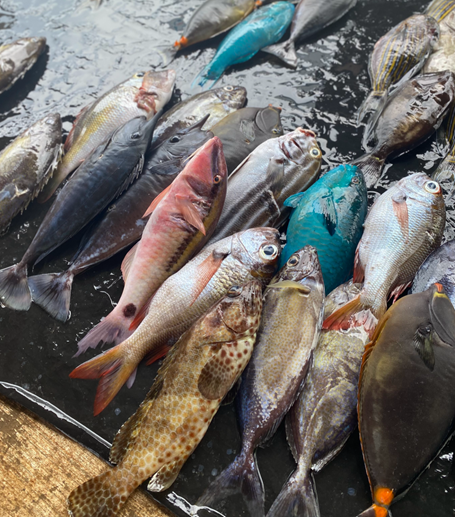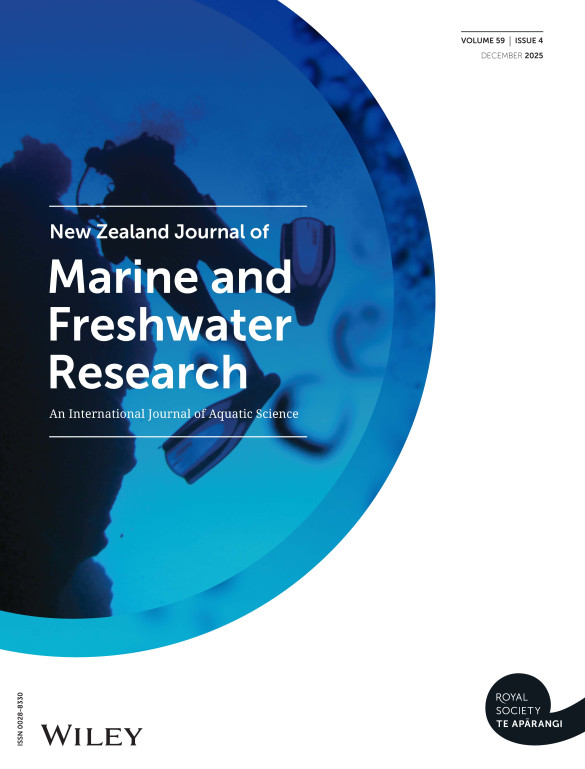News
Published 11 November 2025NZJMFR Call for Papers: Special Issue on Fish and Fisheries of the Pacific Islands

Small-scale fisheries across the Pacific are central to food security, livelihoods, and cultural identity. At both artisanal and subsistence levels, these fisheries underpin the wellbeing and survival of many coastal communities. For numerous small island nations, marine resources are not only an economic asset but also a cornerstone of cultural heritage and social cohesion. Despite their importance, small-scale fisheries in the Pacific remain underrepresented in international research, monitoring, and policy. Challenges such as limited data, weak research networks, and insufficient academic and scientific infrastructure have hindered their global recognition. Their comparatively modest economic value relative to large-scale industrial pelagic fisheries has further contributed to this gap.
This special issue of the New Zealand Journal of Marine and Freshwater Research seeks to highlight and celebrate the breadth of research on Pacific Island fisheries. We invite submissions on all aspects of the field; from the ecology and biology of key fish species, to fisheries science and management, to the socio-cultural, customary, and governance dimensions of small-scale fisheries. Through this collection, NZFMFR aims to provide a platform for Pacific-based and Pacific-focused research, strengthening collaboration and knowledge exchange across the region.
The Lead Guest Editor is Armagan Sabetian (AUT), and he will be supported by an editorial team which includes Simon Foale (JCU), Richard Walter (Otago), Julian Lilkendey (ZMT), Brett Taylor (Guam), and Kevin Rhodes (SCRFA).
We seek a mix of research papers, ranging from comprehensive studies to reviews and short communications.
We invite submissions on a broad range of topics, including, but not limited to:
- Age, growth, and population dynamics studies
- Reproductive biology and recruitment dynamics of key species
- Fisheries catch and effort analyses (CPUE and related metrics)
- Stock assessment and fishery-independent monitoring
- Traditional ecological knowledge and customary marine tenure systems
- Gender and participation in small-scale fisheries
- Fisheries governance, policy, and management frameworks
- Socio-economic and cultural dimensions of coastal fisheries
- Co-management and community-based resource management approaches
- Marine protected areas and locally managed marine areas (LMMAs)
- Climate change impacts and adaptive capacity of coastal fisheries
- Habitat use and connectivity (reef, mangrove, seagrass, pelagic linkages)
- Post-harvest processing, value chains, and local markets
- Emerging technologies for fisheries monitoring and data collection
- Aquaculture and mariculture developments in the Pacific
- Historical and archaeological perspectives on Pacific fisheries
Submission information
Please send a preliminary title, list of authors and a short descriptive paragraph outlining the scope of your proposed manuscript to the Lead Guest Editor, Associate Professor Armagan Sabetian (armagan.sabetian@aut.ac.nz), by 28 February 2026.
The guest editorial team will then decide which manuscripts to invite to the Special Issue, with authors notified of the decision by 27 February 2026. Note that an invitation to submit does not guarantee acceptance for publication; this will depend on the outcome of the normal peer review process and authors meeting critical time schedules. See Author Instructions for the submission of articles to the New Zealand Journal of Marine and Freshwater Research.
The anticipated manuscript submission deadline is 31 August 2026. Each article is published individually with final citation details once accepted, and then grouped together on a dedicated Special Issue webpage for this collection.
There are no page charges or publication fees under the traditional subscription-based publishing model. Furthermore, authors affiliated with a growing range of global institutions, may be eligible to publish your articles Open Access at no cost to yourself.
Please direct any queries to Associate Professor Armagan Sabetian or the Publishing Team of Royal Society Te Apārangi (publish@royalsociety.org.nz).

